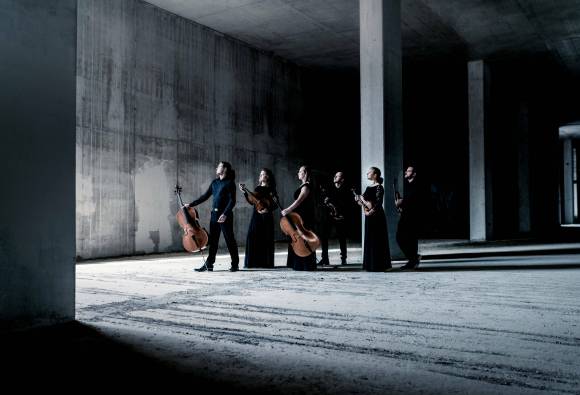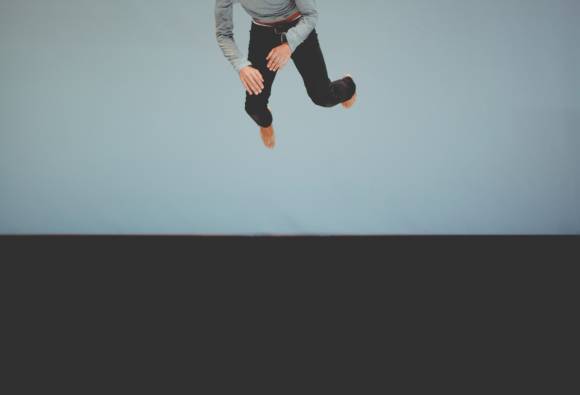
Sogodbe: Circuit des Yeux
Featuring: Slovenski godalni sekstet (SGS – Slovenian String Sextet)
The concert by vocalist, composer and singer-songwriter Haley Fohr, known by the stage name Circuit des Yeux, forms part of the Druga Godba Festival series dedicated to the world’s best female singers.
As regards US’s art pop, it can undeniably be said that there hasn’t been a more formidable voice since Diamanda Galas. Fohr is most distinctly identified by her 4-octave voice and unique style of 12-string guitar. Her mysterious Jackie Lynn project landed her on the cover of Wire Magazine in August 2016. She has released several critically acclaimed albums. Her most recent album, -io, has garnered praise from the critics and enthusiastic response from an ever-growing audience.
Before the pandemic cast its weather of mourning on the world, and before she began weaving together her sixth album as Circuit Des Yeux, -io, Haley Fohr found herself grieving a close friend. For a time, the loss severed her from her art. A singular, celebrated figure in the Chicago experimental music scene, known for her arresting voice and the transportive moods she grows around it, Fohr had kept a steady creative practice since she first began recording her own music as a teenager. Grief ruptured that foundation.
Under lockdown, her typically collaborative songwriting practice became solitary. She wrote on piano and organ, instruments on a larger scale than her usual guitar that felt more "like a solid foundation you can stand on." Her lyrics kept returning to images of black holes and gravity, all-consuming phenomena that rend our common experience of physical reality. "I became obsessed with black holes, which is the ultimate gravitational pull," Fohr says. "It also makes such a synonymous metaphor to death. Things go in, they can only go one way. They go in and they never come out." From that colossal gateway, songs began to form. They followed the disintegration of the world as it stands, the hard-wrought rituals and habits that are already beginning to fracture under the pressures of climate catastrophe, as on "Vanishing," where Fohr sings "goodbye" to everything she can see and touch around her. They pinned down claustrophobic moods through the threatening whispers of "The Chase," and they shook them loose with sweeping vocal runs, like those that lattice the slow, enveloping "Walking Toward Winter" and pierce the melancholic "Stranger," a chilling piano-and-string composition that was recorded live in a single take.
Working at home on her computer, Fohr wrote, arranged, and produced each note of -io. She wrote for a 23-piece orchestra, gathering strings, horns, and drums around her daring vocal melodies. She staged -io on a scale vaster than anything she'd recorded before, a scale that matched the enormity she'd weathered, big enough to hold the world in its tumult.
Under COVID restrictions, Fohr could only record with six other players in the studio at a time. She and her collaborators – 13 renowned musicians from Chicago’s jazz, classical, and experimental scenes – built -io layer by layer, entwining its pain with the clear yearning that sparks at its dark heart. Horns cry out like terrified and distant voices from the dizzying waltz of "Neutron Star." Strings thrash against each other like sheets of rain amid "Vanishing's" apocalyptic thrum. Amid them, Fohr's voice rears in space, overdubbed to the point where it becomes an architecture of its own, at once the subject in the narrative and the surrounding environment. The effect is at once capacious and crushing, like being drawn into a gas giant. This is what happens when you take grief's smothering and render it in space: It expands. It becomes something you can traverse. That quiet, impossible feeling of loss can suddenly be crossed. The body moves through it. What once seemed to be an impenetrable collapse turns into a site of possibility. From the wreckage, something grows, and the ruin is no longer a ruin. In all its smouldering and all its weight, it is simply a place to begin.
In Ljubljana, Circuit des Yeux performs with a three-member band and special guests SGS (Slovenian String Sextet). The chamber ensemble Slovenski godalni sekstet (SGS) was formed in September 2017 and includes Ana Dolžan and Vid Sajovic on violin, Nejc Mikolič and Anuša Plesničar on viola and Izak Hudnik and Katarina Kozjek on cello.
Sogodbe: Circuit des Yeux
18,00 I 15,00* EUR; on the day of the concert 22,00 EUR
Co-production Zavod Druga godba and Cankarjev dom



